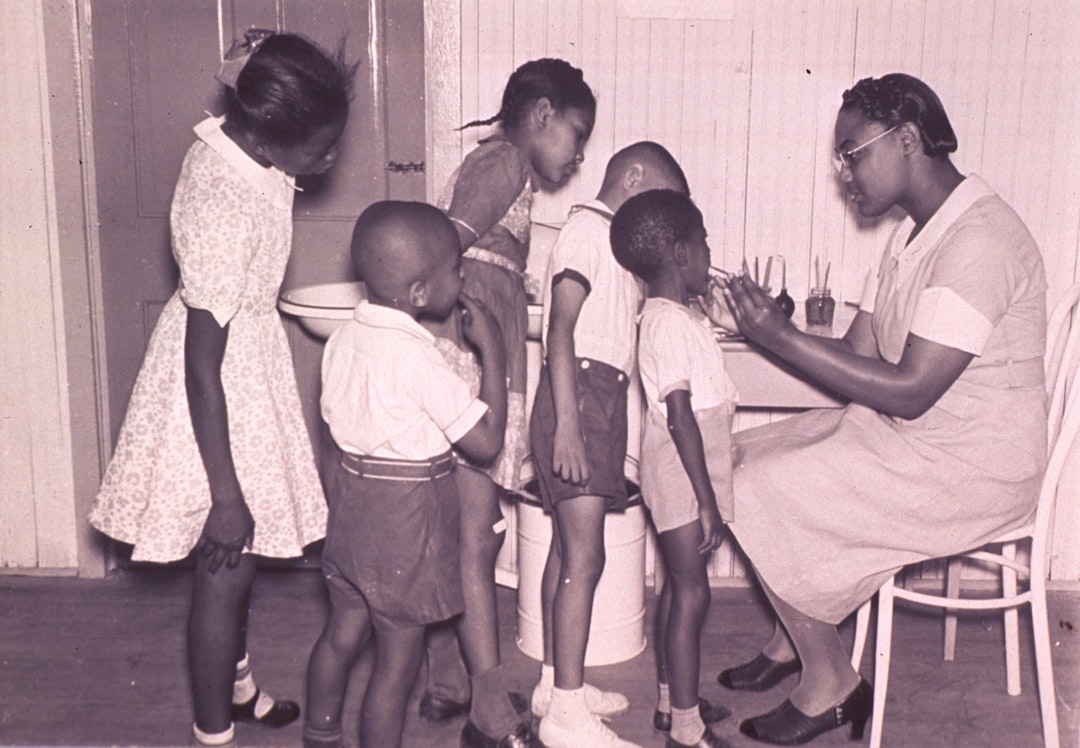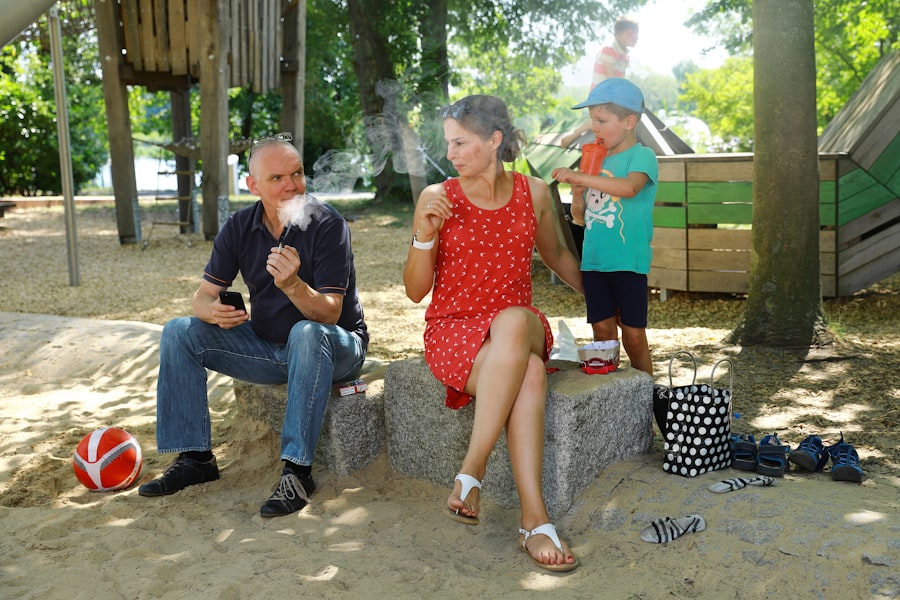What Not to Do When Parenting a Child with ADHD

Attention Deficit Hyperactivity Disorder (ADHD) is a neurodevelopmental disorder that affects children and often continues into adulthood. It is characterized by symptoms such as inattention, hyperactivity, and impulsivity. According to the Centers for Disease Control and Prevention (CDC), ADHD affects approximately 9.4% of children aged 2-17 in the United States. It is important to understand the symptoms of ADHD in order to provide appropriate support and intervention for children with this condition.
Common symptoms of ADHD include difficulty paying attention, being easily distracted, forgetfulness, impulsivity, and excessive physical activity. These symptoms can vary in severity and may manifest differently in each child. It is important to note that having some of these symptoms does not necessarily mean a child has ADHD. A diagnosis should be made by a qualified healthcare professional based on a comprehensive evaluation.
Key Takeaways
- ADHD is a neurodevelopmental disorder that affects children’s ability to focus and control their behavior.
- Ignoring the symptoms of ADHD can lead to negative consequences for the child’s academic and social development.
- Blaming the child for their behavior can damage their self-esteem and hinder their progress.
- Punishment should not be the primary discipline method for children with ADHD, as it can be ineffective and counterproductive.
- Overwhelming children with too many activities can exacerbate their symptoms and make it harder for them to manage their behavior.
Don’t Ignore the Symptoms of ADHD
Early detection and intervention are crucial when it comes to managing ADHD in children. Ignoring the symptoms can have negative consequences for the child’s academic performance, social relationships, and overall well-being. Children with untreated ADHD may struggle with schoolwork, have difficulty following instructions, and experience challenges in maintaining friendships.
Addressing the symptoms of ADHD can lead to significant benefits for the child. With appropriate support and intervention, children with ADHD can learn strategies to manage their symptoms, improve their academic performance, and develop better social skills. Early intervention can also help prevent secondary issues such as low self-esteem and behavioral problems.
Don’t Blame Your Child for Their Behavior
It is important to understand that ADHD is a neurobiological condition that affects the brain’s executive functions, such as attention, impulse control, and organization. Blaming children for their behavior can be detrimental to their self-esteem and mental health. It is crucial to recognize the difference between behavior and symptoms.
Children with ADHD may exhibit impulsive or hyperactive behavior, but it is important to remember that these behaviors are not intentional. They are a result of the underlying neurological differences associated with ADHD. Instead of blaming the child, it is more helpful to focus on understanding their challenges and finding strategies to support them.
Don’t Use Punishment as a Primary Discipline Method
Punishment is often ineffective for children with ADHD and can have negative consequences. Children with ADHD may struggle with impulse control and have difficulty following rules, which can lead to frequent disciplinary issues. However, punishment alone does not address the underlying symptoms of ADHD and may exacerbate behavioral problems.
Instead of relying on punishment, it is important to use alternative discipline methods that focus on teaching and reinforcing positive behavior. This can include setting clear expectations, providing structure and routine, using positive reinforcement, and implementing consequences that are logical and related to the behavior.
Don’t Overwhelm Your Child with Too Many Activities
Children with ADHD may be more sensitive to overstimulation and may struggle with managing multiple activities at once. Overloading them with too many activities can lead to increased stress, anxiety, and difficulty in focusing. It is important to find a balance between activities and rest for children with ADHD.
Limiting the number of activities can help reduce overwhelm and allow children to focus on tasks at hand. It is also important to provide breaks and downtime throughout the day to allow for relaxation and recharge. By creating a balanced schedule, children with ADHD can better manage their energy levels and improve their ability to concentrate.
Don’t Neglect the Importance of a Consistent Routine

A consistent routine can be extremely beneficial for children with ADHD. It provides structure, predictability, and helps them develop good habits and routines. Children with ADHD often struggle with time management, organization, and transitions. A consistent routine can help alleviate these challenges.
Having a consistent routine allows children to know what to expect and reduces anxiety and stress. It helps them develop a sense of control and predictability, which can be particularly helpful for children with ADHD. It is important to establish a routine that includes regular sleep patterns, meal times, homework schedules, and leisure activities.
Don’t Be Inconsistent with Your Parenting Approach
Consistency in parenting is crucial for children with ADHD. Inconsistency can lead to confusion, frustration, and increased behavioral problems. Children with ADHD thrive in an environment that provides clear expectations, consistent rules, and predictable consequences.
It is important for parents to communicate and collaborate with each other to ensure consistency in parenting approaches. This includes using the same strategies for discipline, setting consistent boundaries, and providing a united front when addressing behavioral issues. Consistency helps children with ADHD understand what is expected of them and provides them with a sense of security.
How to Fix ADHD: Seeking Professional Help
While there is no cure for ADHD, seeking professional help can greatly improve the management of symptoms and overall well-being of children with ADHD. There are various professionals who can provide support and intervention for children with ADHD, including pediatricians, psychologists, psychiatrists, and therapists.
Treatment options for ADHD may include medication, behavioral therapy, parent training programs, and educational interventions. It is important to work closely with healthcare professionals to develop an individualized treatment plan that addresses the specific needs of the child. Regular monitoring and follow-up are also important to ensure the effectiveness of the treatment.
How to Improve ADHD: Creating a Supportive Environment
Creating a supportive environment is crucial for children with ADHD. A supportive environment includes understanding and empathetic parents, teachers who are knowledgeable about ADHD, and peers who are accepting and inclusive. It is important to educate family members, teachers, and friends about ADHD to foster understanding and support.
Tips for creating a supportive environment include providing clear communication, setting realistic expectations, and providing accommodations when necessary. It is also important to celebrate the strengths and successes of children with ADHD and provide them with opportunities to thrive in their areas of interest.
How to Cure ADHD: Understanding the Limits of Treatment Options
While there is no cure for ADHD, it is important to manage expectations and focus on improvement rather than a cure. ADHD is a lifelong condition that requires ongoing management and support. It is important to understand that treatment options can help manage symptoms and improve functioning, but they may not completely eliminate all challenges associated with ADHD.
It is crucial to provide ongoing support, understanding, and patience for children with ADHD. By focusing on their strengths, providing appropriate interventions, and creating a supportive environment, children with ADHD can thrive and reach their full potential.
Understanding and supporting children with ADHD is crucial for their overall well-being and success. By recognizing the symptoms of ADHD, addressing them early, and providing appropriate interventions, children with ADHD can learn strategies to manage their symptoms and improve their functioning. It is important to create a supportive environment at home and school, seek professional help when needed, and focus on improvement rather than a cure. With the right support and intervention, children with ADHD can thrive and reach their full potential.
If you’re looking for more information on parenting a child with ADHD, you may find this article on “How to Start Digital” helpful. It provides valuable insights and tips on how to navigate the challenges of raising a child with ADHD in today’s digital age. From managing screen time to finding appropriate digital resources, this article offers practical advice for parents. Check it out here for expert guidance on parenting a child with ADHD.
FAQs
What is ADHD?
ADHD stands for Attention Deficit Hyperactivity Disorder. It is a neurodevelopmental disorder that affects a person’s ability to focus, pay attention, and control impulsive behaviors.
What are some common mistakes parents make when parenting a child with ADHD?
Some common mistakes parents make when parenting a child with ADHD include: not setting clear boundaries, not being consistent with consequences, not providing enough structure and routine, not seeking professional help, and not understanding the child’s unique needs.
Why is it important to set clear boundaries for a child with ADHD?
Setting clear boundaries for a child with ADHD is important because it helps them understand what is expected of them and what behaviors are not acceptable. This can help reduce impulsivity and improve their ability to focus and follow rules.
Why is consistency important when parenting a child with ADHD?
Consistency is important when parenting a child with ADHD because it helps them understand that their actions have consequences. When consequences are not consistent, the child may become confused and not understand why certain behaviors are not allowed.
Why is structure and routine important for a child with ADHD?
Structure and routine are important for a child with ADHD because it helps them feel more organized and in control. This can help reduce anxiety and improve their ability to focus and complete tasks.
When should a parent seek professional help for their child with ADHD?
A parent should seek professional help for their child with ADHD if they are struggling to manage their child’s behavior, if their child is struggling in school or social situations, or if their child’s ADHD symptoms are significantly impacting their daily life. A healthcare provider or mental health professional can provide a diagnosis and recommend appropriate treatment options.




